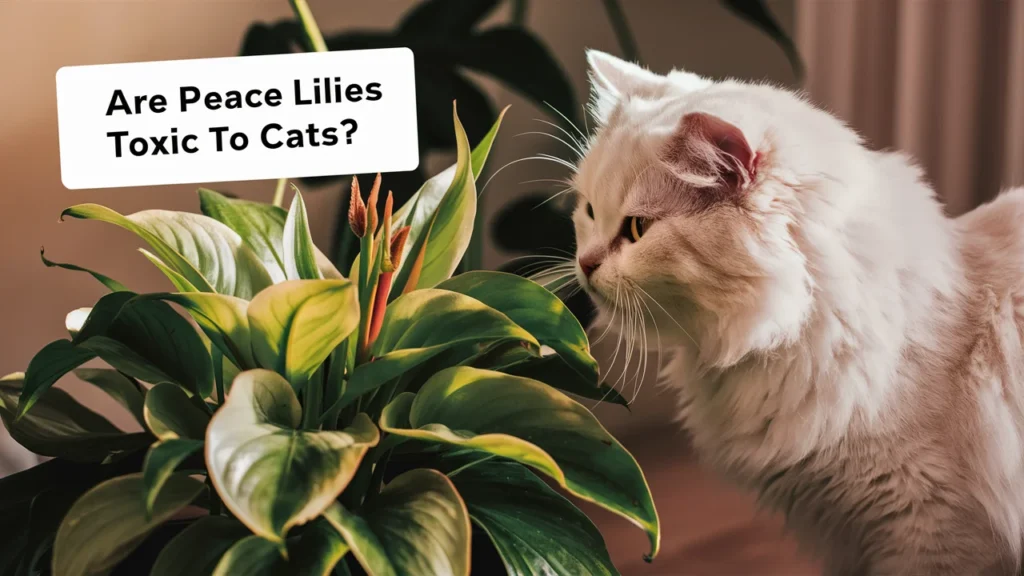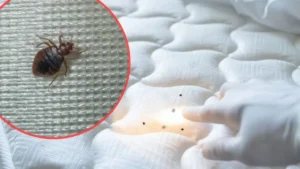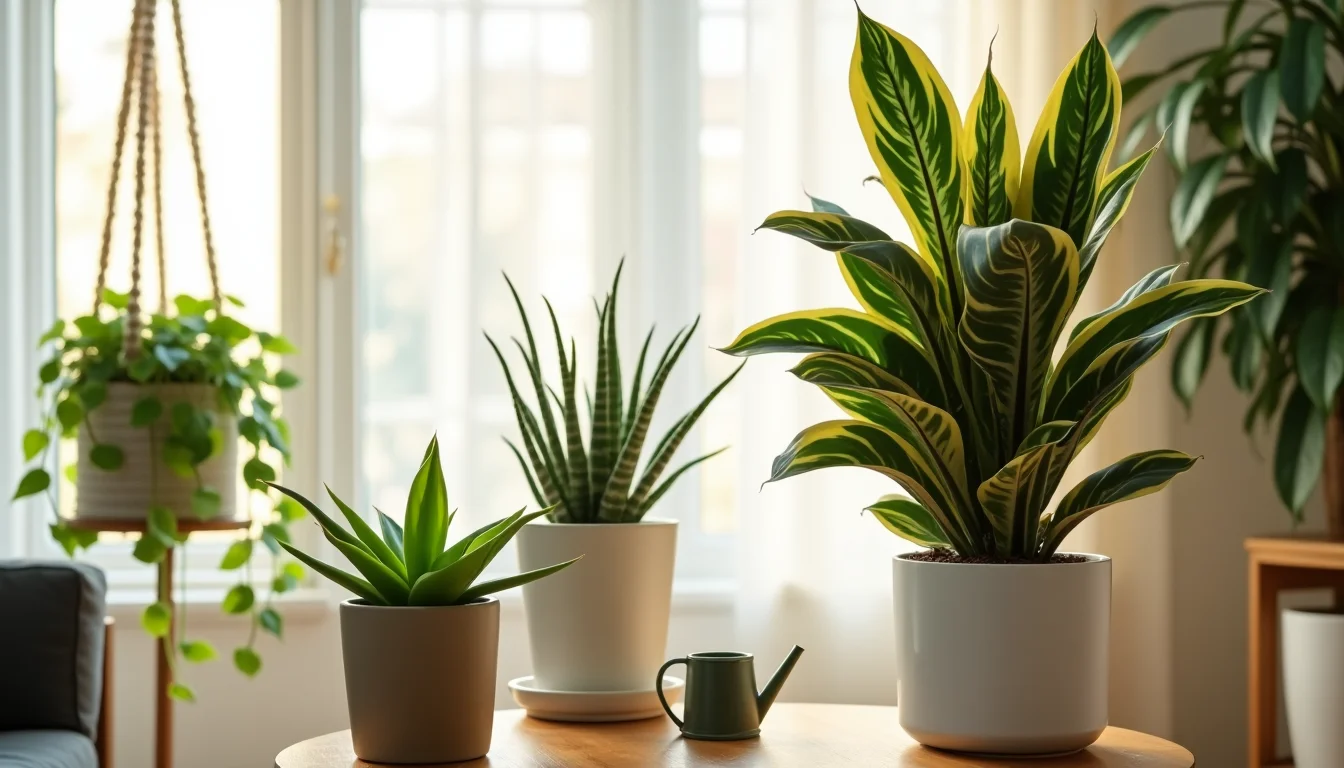Peace lilies are a common indoor plant that have beautiful white flowers and green leaves that are full. Nevertheless, if you own a cat, you might be curious to know whether these lovely plants are safe for your feline friend. One question asked by many pet owners is “Are peace lilies toxic to cats?” This article will focus on this topic by providing important information so that your cherished pets’ lives may not be lost.
What Causes Poisoning in Cats From Peace Lilies? 🧪🌱
Cats really are affected by peace lilies (Spathiphyllum), but in a way different from what many people think. Calcium oxalate is found in the stems, flowers, and leaves of the plant. These needle-like crystals can cause irritation and discomfort when swallowed, particularly in the mouth, throat or stomach.
Calcium oxalate crystals have sharp edges that can become embedded within soft tissues of your feline’s mouth or digestive system. Drooling, difficulty swallowing vomit and swelling could result as a result. Although seldom deadly, it may be quite painful to your cat and require veterinary care.
Symptoms of Peace Lily Poisoning in Cats 😿🚑
You will likely notice signs soon after your cat has chewed or eaten parts of peace lily. Common symptoms of such poisoning include:
Drooling And Pawing At The Mouth: Due to calcium oxalate crystals being irritating; drooling with attempts at removing irritant from oral cavity usually occurs.
Vomiting: Plant material may be expelled from body through vomiting in cats.
Difficulty Swallowing: The throat can feel swollen and uncomfortable when it happens to cats.
Swelling Of Lips, Tongue And Mouth: Areas affected by crystals might become visibly larger than normal lips or mouths.
Lethargy: Your cat may be less active and lethargic because of the discomfort it is in.
Immediate veterinary care should be sought if any of these symptoms are observed. Although lily poisoning does not often have fatal outcomes, this can relieve your cat’s discomfort and prevent complications.
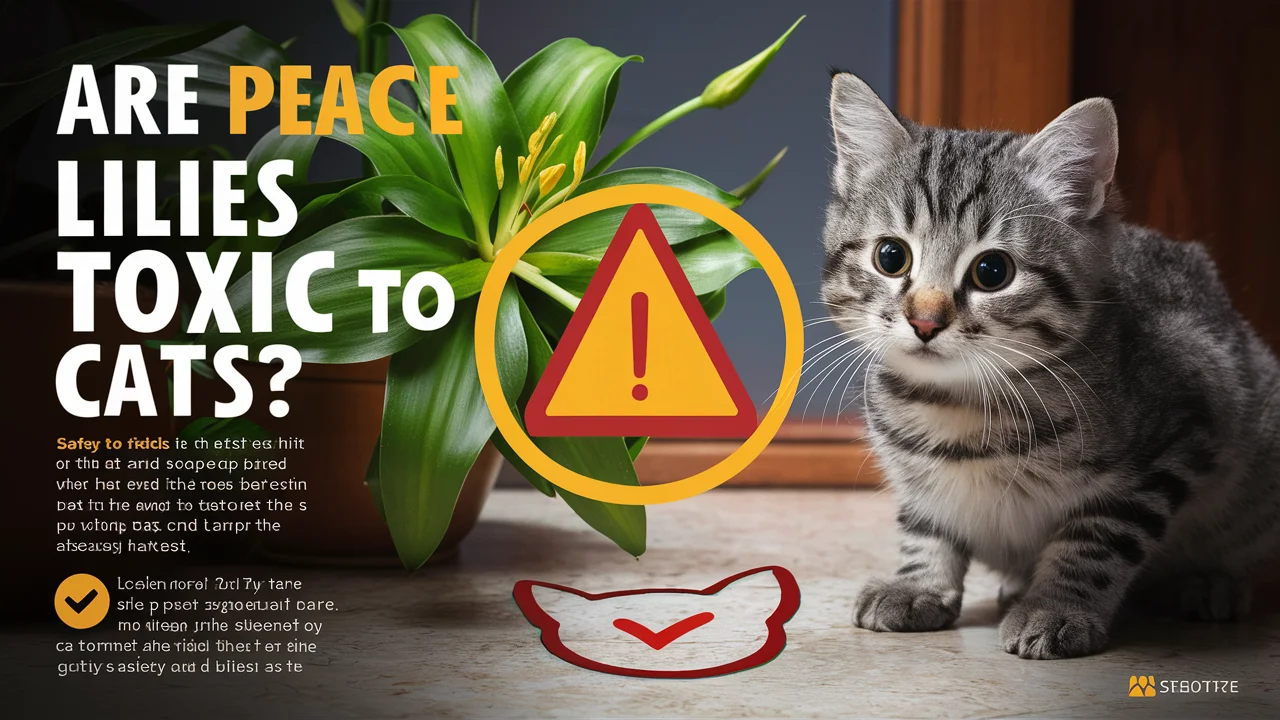
How to Keep Your Cat Safe from Peace Lily Toxicity 🛡️🐾
Avoiding contact between cats and peace lilies is the best way to minimize the risks associated with this plant. Below are some guidelines you could follow to keep your pet safe:
Choose Cat-Friendly Plants 🌷🐈
If you love plants, consider getting those that are cat friendly. Some non-toxic plants like spider plants, Boston ferns and Areca palms can equally make your home beautiful.
Keep Peace Lilies Out Of Reach 🏡🔒
In case you already have peace lilies at home place them in areas not easy for a cat to reach. Put the plant far from your cats reach by using high shelves or hangings baskets.
Provide Alternative Chew Options 🧶🎋
Cats chew plants as an expression of their boredom or out of curiosity. By providing your feline with safe chew toys or even grasses made for cats will help satisfy its need without exposing it to toxic plants.
Educate Your Family and Friends 👪📚
Ensure that everyone in your household knows the risks of peace lilies and why they should be kept away from pets. If you have guests or visitors who may bring plants into your home, let them know the ones that are safe for your cat.
What to Do If Your Cat Eats a Peace Lily 🚨🐱
These accidents can occur; hence if your cat does manage to chew on a peace lily, it is vital that you act promptly. This is what you should do:
Remove the Plant Material: In case you catch your cat red-handed, strive to get rid of any plant pieces left over in its mouth.
Rinse Their Mouth: Try rinsing their mouths gently using water only with an aim of removing remnants of calcium oxalate crystals.
Contact Your Veterinarian: Call a veterinarian immediately. Depending on how severe symptoms are, they might advise you to bring your cat in for examination or offer advice on how to give care at home.
Monitor Your Cat: Make sure you keep an eye on her closely incase there are signs of worsening symptoms or distresses. Stick carefully by what the vet tells you.
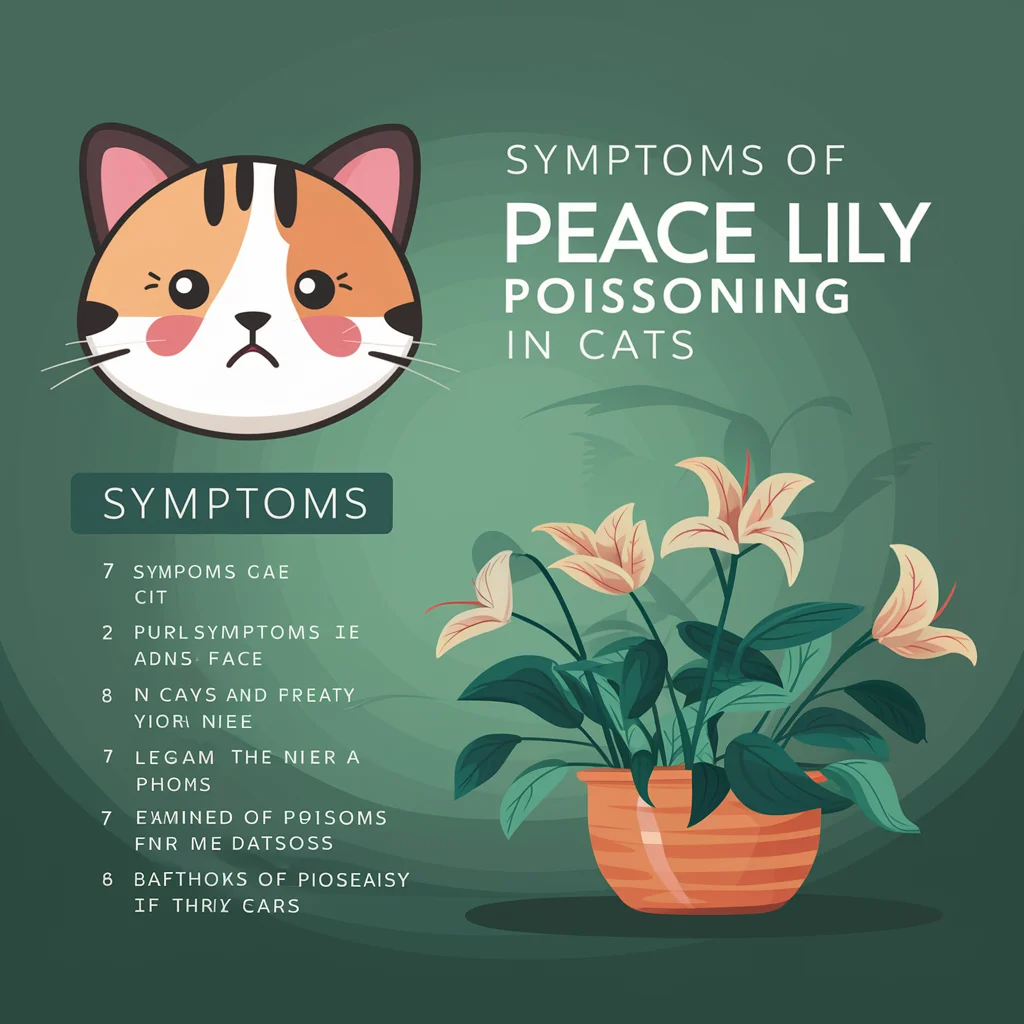
Are Peace Lilies Always Dangerous to Cats? 🤔🔍
It is important to note that not all peace lilies are equally toxic to cats – this toxic level is influenced by several factors such as quantity and individual’s sensitivity. For some cats, only mild symptoms can be observed while others require veterinary attention. Also, it is essential for people to remember that among peace lilies toxicity lies more in the fact they cause irritations than outright death.
However, it doesn’t mean taking any chances though; even minor indications can be stressed both for yourself and your lovely pet thus always protect against all possible cases.
Conclusion:
In conclusion, peace lilies are toxic to cats. This is because the calcium oxalate crystals in them can cause significant discomfort for your feline friend. Therefore, you need to take necessary precautions and be mindful of the cat’s surroundings if you want to keep peace lilies around without endangering your pet.
If you have peace lilies in your home, proactively ensure they are out of reach or consider substituting them with cat-friendly flowers: it should always be about safety and well-being of a cat and by investing a little love and attention, we can have a beautiful home where everything is secure for everyone’s sake.

